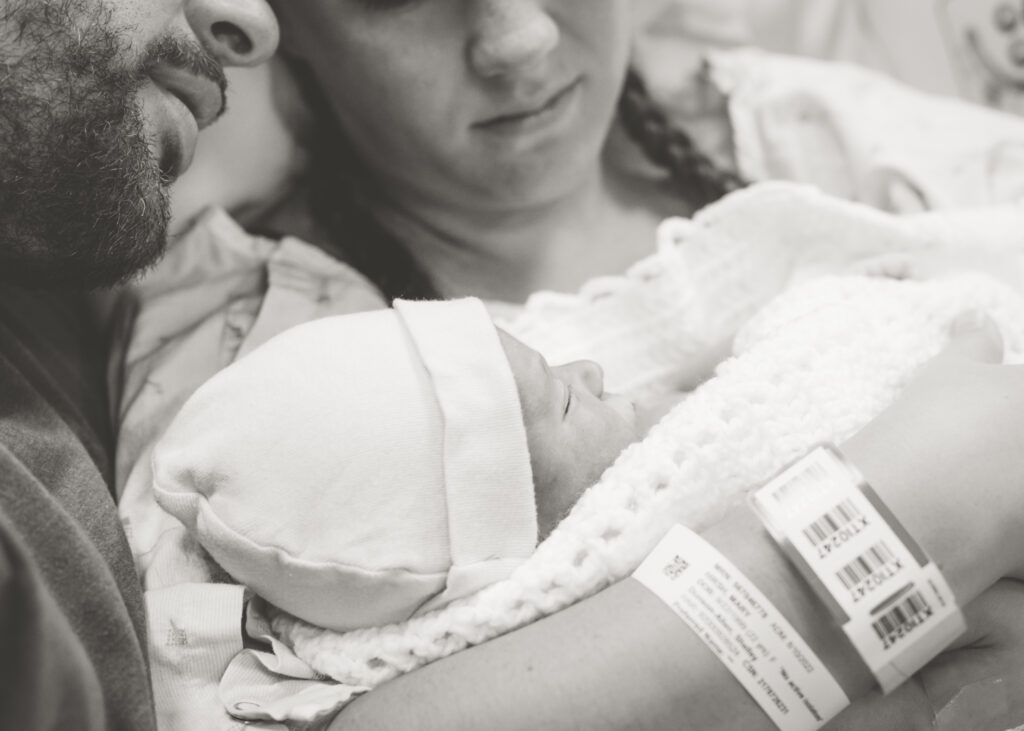When my son died, my husband and I received so much support and sympathy. The most common response was, “I just don’t even know what to say.” This was one of my favorite responses because they didn’t try to say some well-meaning but dismissive comment. It was comforting to know we weren’t the only ones who were completely dumb-founded and acknowledged that there wasn’t anything they could do to fix it.
Even though most people were so sweet, we received many insensitive and unhelpful responses as well. I know that no one was being malicious, and I don’t blame them for not knowing what to say. I truly didn’t know what to say either. But as the months went on, I started to wonder, why does no one know what to say? I know there’s no perfect response, and I know that before my son, I was so ignorant to true suffering. But if one of the only things we are 100% guaranteed in this world is suffering, why aren’t we talking about the helpful and unhelpful ways to support each other through it?
That’s the purpose of this post and this blog. Not to make anyone feel badly for something they have or haven’t done, but to create open dialogue about how we can support each other through the most vulnerable times of our lives. Before my son died, I absolutely would have said many of these things myself. But I wish that someone had this conversation with me back then so I could have been more empathetic.
Disclaimer
These points are based on my own experience, as well as other loss moms I have talked to. I think they would apply to most types of grief and not just loss of children. They won’t be true for everyone, but I have found them to be true for most. This is also focused on what should and shouldn’t be said in the very early days of grief. Many of the things on this list have a time and a place to be said – just maybe not right away.

1. “God has a plan.”
This one is a go-to response for a lot of Christians when something goes awry in life, and I understand why. First of all, it’s true. I truly believe that God has a plan to use my son’s short life to further the Kingdom for His Glory.
Second of all, It sounds like it would be comforting. The idea that God is sovereign over life, death, joy, and sorrow is one of the most comforting promises on earth for believers.
However, is this truth helpful in those early days of grief? Not for me.
It can come across as dismissive of the very real pain. It also seems to suggest, “You just need to have more faith, and then you won’t be sad.”
If the grieving person is like me, they probably have a lot of doubts and questions about their faith. If I had the guts back then, I would have snapped back, “Really? God’s plan was for Josiah to die?”
I was angry with God (still am, somedays). Hearing about this secret plan of a God that had the power to save my son but didn’t was beyond unhelpful in those early days. Now that the wound is not quite as raw, it’s one of my favorite reminders.
Instead of accidentally dismissing the hurt and provoking anger, try, “I have no idea what God is doing, and I am heartbroken for you.”

2. “Everything happens for a reason.”
This is another dismissive cliché that needs to die. Tell me, what is the reason that babies die? Why are children abused? Why do so many people die of cancer? Sometimes bad things happen for no earthly reason. Of course, good can come from bad things. God graciously uses things Satan meant for evil all the time. But we live in a fallen world where there are terrible consequences for sin.
When you read the book of Job, you will find that God never gives Job an earthly reason for his immense suffering. He comforts Job and rebuilds his life, but he never clues Job in on why he was stripped of everything.
That’s oddly comforting to me. I like knowing that I don’t need to spend the rest of my life searching for some explanation for why my son had to die. God is a very big God. He doesn’t need my infant to accomplish his divine purpose. He will use my son’s death for good, and he is heartbroken with me that Josiah died. But there isn’t some secret reason that this tragedy happened that I need to search for.
Instead of this cliché, try, “I can’t make sense of this, but I trust God is moving.”

3. “God gives his toughest battles to his strongest warriors.”
Oh boy… This one. Someone said some version of this to me about a week post loss. They were trying to give me a compliment by saying that if anyone can handle this, it would be me. I remember thinking, “Really? God is punishing me because I was strong?”
Grief can make you so fragile in those early days. For me, everything I believed was called into question. I was highly suggestible as I reasoned with what happened. As people offer condolences, it’s so important to be intentional with every word. Bad theology like this is so dangerous. Thankfully God gave me the discernment to realize how unbiblical this is.
This idea is totally twisted to nurture our egos and take the focus off of God. It attempts to give all the credit to our human strength and none to the God who determines if we breathe our next breath. This is foolish and blasphemous.
Instead try saying, “I’m praying for the Lord to be your strength during this time.”

4. Any statement that begins with “At least…”
We heard plenty of these statements early on. “At least you can try again.” I don’t want to try again. I want my son. “At least he’s with Jesus.” Yeah, and that’s great, but I want him here with me. “At least you’re healthy.” I would rather my son be healthy.
The most common “at least” statement we heard was, “At least you’re young.” A person’s age has absolutely nothing to do with the reality of the grief they face. Honestly, my young age at the time of my son’s death was disappointing to me. It was daunting to realize that I would live the rest of my life carrying this grief.
You might think it’s helpful to evoke gratitude for some silver lining. In those early days, there is no silver lining that can fix the pain. And again, pointing out some reason to be grateful can make the grief feel invalid.
If there is some silver lining, let the grieving person be the one to bring it up if they want to so that you don’t run the risk of coming across as aloof or insensitive.
I think it would be more helpful to say something like, “My prayer is for you to find hope in this darkness.”

5. Saying nothing…
This one was the most hurtful to me. In my opinion, saying a well-meaning, wrong thing is still better than saying nothing. I’m not talking about saying, “I don’t know what to say.” I’m talking about radio silence. No thoughts and prayers. No condolences. Silence.
Several people who I always thought would be there for me if I needed them really let me down when tragedy struck. I never received a text, card, Facebook comment, nothing. Honestly, it still really stings.
Grief is uncomfortable. We get it. It’s no fun to watch someone else cry or awkwardly decide whether to go in for a hug. Just know your momentary discomfort with that person in that moment of tragedy means the world to them. And while you are uncomfortable for those fifteen minutes, 3 hours, one day or whatever it is, remember that temporary discomfort is the grieving person’s 24/7 permanent reality. Choose their comfort over your discomfort.
Even if you have nothing comforting to say. Even if it’s been an awkwardly long amount of time, and it feels weird to say something now. You can at least say, “I’m so sorry for your loss.” “I’m praying for you.” “I’m here for you.” Anything.
In conclusion…
If you are supporting a grieving friend through any kind of tragedy, your job is not to fix it or offer some profound insight to take away their pain. We know you want to help but you feel helpless. If you really want to help, just be there for them. Let them know you are grieving with them. Let them know you won’t forget them or their lost loved one. And then actually be there for them.
If you’re looking for more help on how to love a grieving friend, check out this post about what you can do instead of asking, “How are you?”
Have you experienced tragedy? What unhelpful things did people say to you? I’d love to hear from you. You can comment below or send me an email.
I hope you found this helpful and feel more confident in your ability to comfort someone in need. Thanks for reading!




Pingback: Why Do People Share Pictures of their Stillborn Baby? - Sharing Sorrow
Pingback: How to Support a Grieving Friend – More Than, “How are you?” - Sharing Sorrow